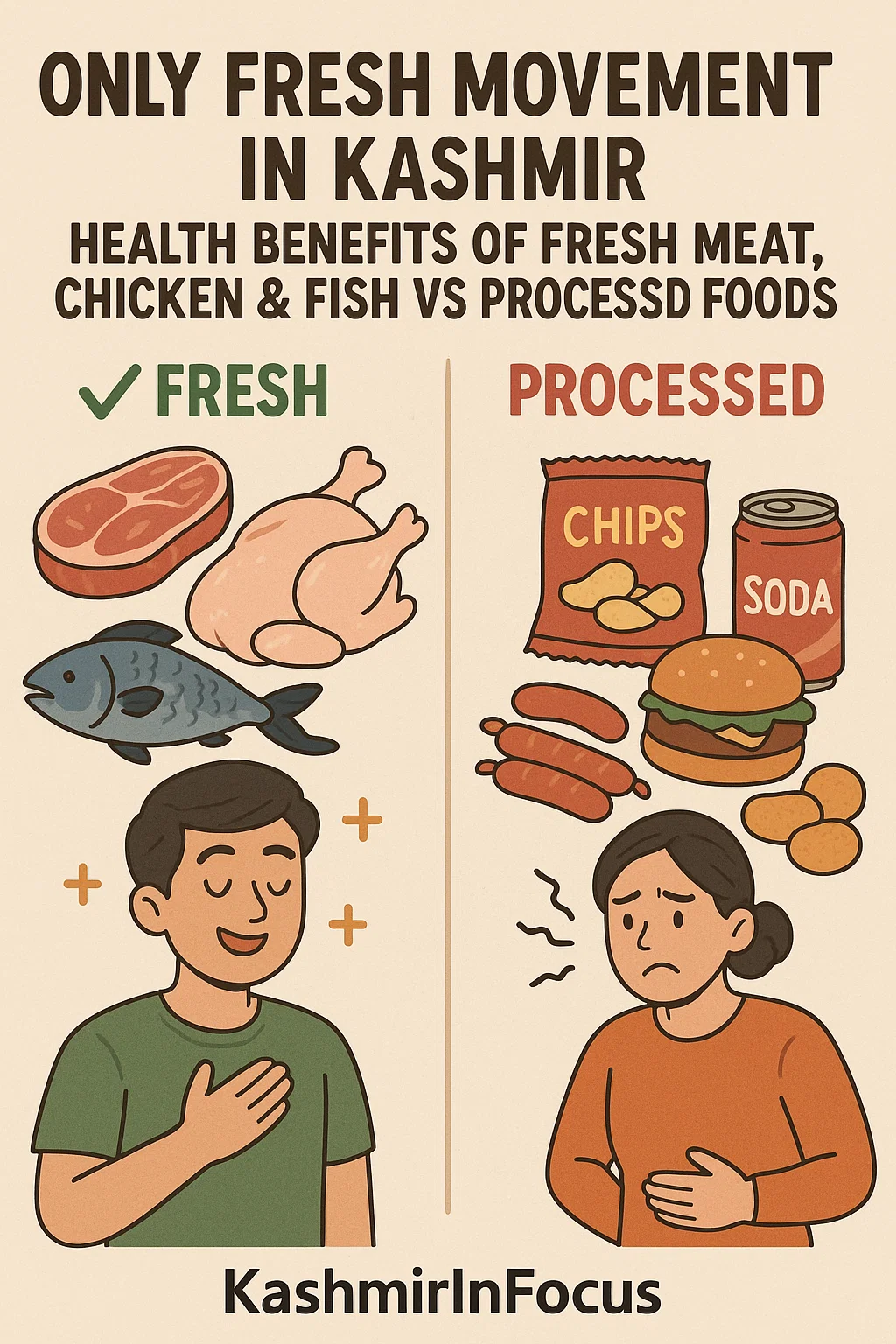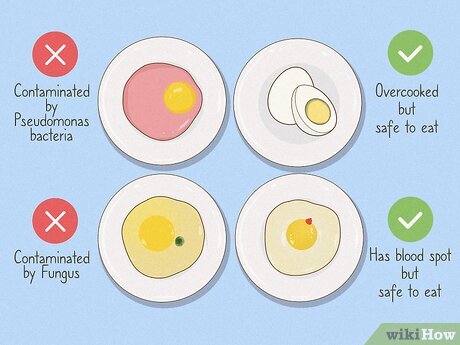Only Fresh: Kashmir’s Grassroots Call for Health, Heritage, and Honest Food
By: Javid Amin | Srinagar | 11 Aug 2025
The Rise of “Only Fresh” in Kashmir
In recent years, Kashmir has faced a series of food safety scares—spoiled meat seizures, counterfeit sweets, and the use of banned synthetic food colours in traditional dishes. These crises have shaken public trust and triggered a powerful grassroots movement: “Only Fresh—Meat, Chicken, Fish. No to Processed Foods.”
But this isn’t just a dietary slogan. It’s a statement of health sovereignty, cultural pride, and consumer dignity. It’s about choosing real food over industrial shortcuts—even when convenience tries to tempt us away from tradition.
Community leaders, health advocates, and everyday citizens are now uniting behind this banner, urging homes, markets, and restaurants to go back to the roots: fresh, local, honest food.
Why Fresh Meat, Chicken, and Fish Matter
Fresh animal proteins have been the backbone of Kashmiri cuisine for centuries. Dishes like Rogan Josh, Gushtaba, Tabak Maaz, and fresh trout are cultural symbols, tied to family gatherings, weddings, and festivals.
Nutritional Advantages of Fresh Meat & Fish:
-
Complete Proteins: Provide all essential amino acids needed for muscle repair and immune function.
-
Healthy Fats: Fresh fish from Kashmir’s streams is rich in omega-3 fatty acids, linked to brain health and reduced inflammation.
-
Micronutrients: Iron, zinc, selenium, and B vitamins—nutrients that industrial processing often depletes.
-
Digestive Friendliness: Naturally fresh meat is easier on the stomach when cooked properly, without chemical preservatives.
Fresh food is alive in flavour and texture, whereas processed meats often rely on salt, sugar, artificial smoke, and chemical curing agents to mask their lack of vitality.
The Processed Food Problem: A Global & Local Crisis
Globally, ultra-processed foods now make up over 50% of calories consumed in many countries. They are cheap, convenient, and heavily marketed—but they are also nutritionally poor and chemically dense.
In Kashmir, the penetration of processed foods has been rapid:
-
Frozen nuggets replacing fresh kebabs.
-
Factory-made sausages appearing in hotel breakfasts.
-
Tinned fish substituting fresh-caught trout.
-
Instant noodles competing with traditional noon chai snacks.
This shift is eroding health, damaging the economy, and weakening cultural food traditions.
Fresh vs Processed – A Detailed Health Impact Comparison
| Aspect | Fresh Meat, Chicken, Fish | Processed Foods |
|---|---|---|
| Nutritional Value | High-quality protein, B vitamins, iron, selenium, omega-3s | Often stripped of nutrients; high in sodium, sugar, trans fats |
| Health Benefits | Supports immunity, heart health, brain function | Linked to obesity, diabetes, heart disease, cancer |
| Additives | Minimal or none when fresh and local | Preservatives, artificial colours, flavour enhancers, emulsifiers |
| Digestive Impact | Easier to digest, less inflammatory | May cause bloating, gut irritation, long-term organ stress |
| Cultural Value | Preserves traditional cuisine & livelihoods | Undermines heritage, promotes industrial dependency |
Cost vs Health: The True Price of Convenience
| Factor | Fresh Foods | Processed Foods |
|---|---|---|
| Upfront Cost | Higher due to perishability, small-batch supply | Lower due to mass production & subsidies |
| Long-Term Health Cost | Lower – prevents chronic disease, reduces medical bills | Higher – increases risk of expensive lifestyle diseases |
| Shelf Life | Shorter; needs refrigeration | Longer; often nutritionally compromised |
| Local Economy Impact | Supports farmers, butchers, fishers | Profits multinational corporations, not local producers |
While processed products may seem cheaper at checkout, the hidden costs—hospital visits, medications, lost work days—make them far more expensive in the long run.
Cultural and Religious Dimensions of Fresh Food in Kashmir
In Kashmir, food is more than fuel—it’s a social glue and a religious duty. Halal meat, fresh fish from Dal Lake, and locally sourced chicken are tied to faith, hospitality, and identity.
Fresh food is a form of respect—for guests, for God, and for oneself. Processed meat, often of unknown origin and questionable slaughter methods, undermines these values.
The Food Safety Crisis That Sparked Action
Recent scandals have reinforced the movement:
-
3,500 kg of rotten meat destroyed in Srinagar.
-
440 quintals of counterfeit Rasgullas seized in Jammu.
-
Banned synthetic colours found in Wazwan, biryani, and kebabs.
These incidents proved that industrial shortcuts are incompatible with Kashmir’s food dignity.




